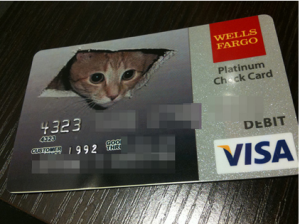Court Strikes Down Fed’s Debit Card Swipe-Fee Rules Image courtesy of (Tony Webster)
Before the cap, the average swipe fee was around $.44 per debit card transaction. After studying the costs associated with the process, the Fed initially proposed slashing the fee to a maximum of $.12, which caused outrage by the banking industry, as it stood to lose billions of dollars a year in revenue.
The Fed ultimately settled on a $.21 cap, which displeased retail industry groups that claimed this level did little to bring the fees in line with actual costs and actually resulted in higher swipe fees for some merchants. Even so, that rate went into effect in the fall of 2011.
The National Retail Federation, along with other retail concerns, sued the Board of Governors of the Federal Reserve in federal court in Nov. 2011, saying that the Fed had failed to follow the directions set forth in the legislation that called for the caps, the Durbin Amendment to the Dodd-Frank financial reforms of 2010.
“The board’s final rule permits banks to recover significantly more costs than permitted by the plain language of the Durbin Amendment and deprives plaintiffs of the benefits of the statute’s anti-exclusivity provisions,” wrote the plaintiffs in their original complaint [PDF].
And today, U.S. District Judge Richard Leon in Washington, D.C., sided with the NRF and its allies, ruling that the Fed did not abide by its directive.
“The Board has clearly disregarded Congress’s statutory intent by inappropriately inflating all debit card transaction fees by billions of dollars and failing to provide merchants with multiple unaffiliated networks for each debit card transaction,” reads today’s ruling.
The fee cap will remain as-is for the time-being. A hearing has been set for Aug. 14 to determine the next steps.
Today’s ruling has obviously pleased the retail industry, which expects to see swipe fees reduced even more after regulators have another go at crunching the numbers.
“From the very beginning, retailers and restaurants knew the Federal Reserve Board of Governors had grossly misapplied the swipe fee law, also known as the Durbin Amendment,” said NRF Sr. VP and General Counsel Mallory Duncan in a statement today. “They failed to heed Congress’ call to set fee standards that were ‘reasonable’ and ‘proportional’ to the actual cost of a transaction. Instead, the Board manufactured a standard that was two to three times higher than the Fed staff recommended…
“Congress clearly told the Fed to introduce competition and transparency into the debit card marketplace by making multiple networks available, so as to reduce swipe fees for merchants and their customers,” continued Duncan. “The Fed failed to do so, and the court rightly ruled against them as a result. Today’s decision is the first step in setting these initial wrongs right and will ensure that swipe fee reform is done correctly.”
What remains to be seen is how banks will react to even lower swipe fees. In response to the initial slashing from $.44 to $.21, many larger banks began tacking on fees to debit-card customers, or taking away rewards programs that had been used for years to entice customers into using their debit cards. Banks now want customers to use their credit cards — which still have high fees for merchants and tack on double-digit interest charges for most cardholders who don’t pay their bills in full right away.
Want more consumer news? Visit our parent organization, Consumer Reports, for the latest on scams, recalls, and other consumer issues.


